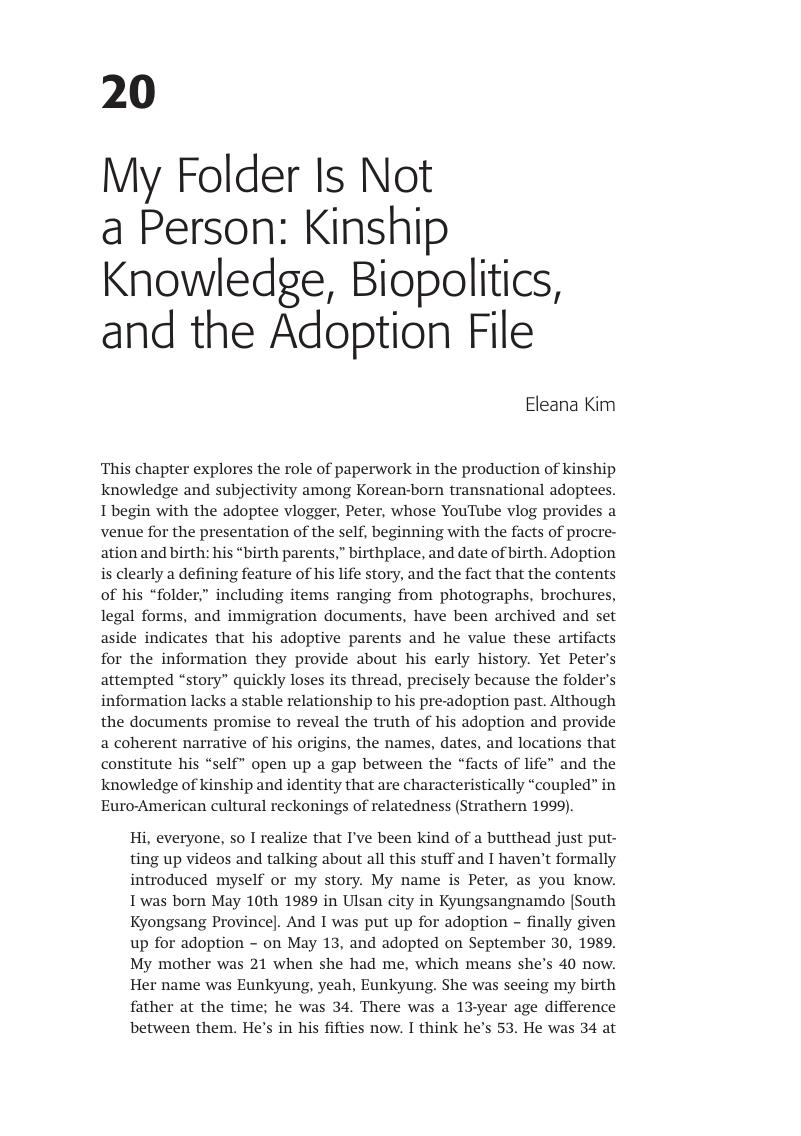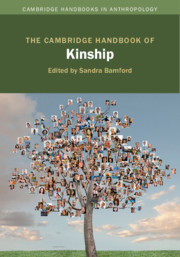Book contents
- The Cambridge Handbook of Kinship
- Cambridge Handbooks in Anthropology
- The Cambridge Handbook of Kinship
- Copyright page
- Contents
- Figures
- Tables
- Contributors
- 1 Introduction: Conceiving Kinship in the Twenty-First Century
- Part I Opening Frameworks
- Part II The (Non)Biological Basis of Relatedness
- Part III Reproducing Society: Gender, Birth, and Power
- Part IV Transnational Connections
- 16 Maids, Mistresses, and Wives: Rethinking Kinship and the Domestic Sphere in Twenty-First Century Global Hong Kong
- 17 Transnational Adoption
- 18 Kinship in Transnational Encounters: Filipino Migrants As “Ideal Brides” in Rural Japan
- 19 Un/making Family: Relatedness, Migration, and Displacement in a Global Age
- 20 My Folder Is Not a Person: Kinship Knowledge, Biopolitics, and the Adoption File
- Part V Technological Conceptions
- Part VI Kinship and the Nation-State
- Index
- References
20 - My Folder Is Not a Person: Kinship Knowledge, Biopolitics, and the Adoption File
from Part IV - Transnational Connections
Published online by Cambridge University Press: 22 April 2019
- The Cambridge Handbook of Kinship
- Cambridge Handbooks in Anthropology
- The Cambridge Handbook of Kinship
- Copyright page
- Contents
- Figures
- Tables
- Contributors
- 1 Introduction: Conceiving Kinship in the Twenty-First Century
- Part I Opening Frameworks
- Part II The (Non)Biological Basis of Relatedness
- Part III Reproducing Society: Gender, Birth, and Power
- Part IV Transnational Connections
- 16 Maids, Mistresses, and Wives: Rethinking Kinship and the Domestic Sphere in Twenty-First Century Global Hong Kong
- 17 Transnational Adoption
- 18 Kinship in Transnational Encounters: Filipino Migrants As “Ideal Brides” in Rural Japan
- 19 Un/making Family: Relatedness, Migration, and Displacement in a Global Age
- 20 My Folder Is Not a Person: Kinship Knowledge, Biopolitics, and the Adoption File
- Part V Technological Conceptions
- Part VI Kinship and the Nation-State
- Index
- References
Summary

- Type
- Chapter
- Information
- The Cambridge Handbook of Kinship , pp. 451 - 480Publisher: Cambridge University PressPrint publication year: 2019
References
- 3
- Cited by



